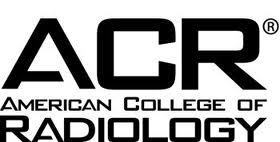ACR urges 'supercommittee' to spare imaging from budget cuts
by
Brendon Nafziger, DOTmed News Associate Editor | September 16, 2011

Advanced imaging has
faced a series of cuts since 2005.
The American College of Radiology asked the so-called supercommittee, a group of senators and congressmen tasked with slashing $1.2-1.5 trillion from the national budget, to spare imaging in any future Medicare cuts.
In a Sept. 13 letter to the committee, a 12-member panel filled equally by Republicans and Democrats, the ACR said advanced imaging (CT, MRI, PET) has unfairly been the main target of Medicare cuts over the past six years. And the scale of the cuts has forced some radiologists to shut their doors.
"ACR feels strongly that when looking at the possibility of provider payment reductions in Medicare, the Committee should no longer divide the physician community into winners and losers as recent legislation and regulation has done; but instead, apply any reductions to all providers, not just a select few," the group said in the letter to the Joint Select Committee on Deficit Reduction, the committee's actual name.
The letter joined the formal evidence rolls Tuesday, during the committee's second meeting, when it listened to testimony from Congressional Budget Office Director Doug Elmendorf on deficit-slashing options.
Imaging takes a hit
Recent cuts have reduced Medicare spending on advanced imaging, raised the assumed utilization rate, and reduced the amount paid for multiple procedures performed on the same patient on the same day, the ACR said in the letter.
A sample of recent cuts includes the Deficit Reduction Act of 2005, which cut spending on advanced imaging by 19.2 percent in 2007 alone, the ACR said, and the Patient Protection and Affordable Care Act, which jacked up the assumed utilization rate to 75 percent, meaning Medicare pays less for the technical component.
"These payment reductions are making it increasingly difficult, and in some cases impossible, for many radiologists to keep their offices and freestanding imaging centers open while actual practice costs continue to increase," the ACR said. "The unfortunate result of this reality is the closure of freestanding imaging centers which reduce patient access to timely, non-emergent imaging services."
Rocky road
Formed as a last-minute compromise to avoid national default, the supercommittee has to come up with at least $1.2 trillion in savings over the next decade. Its proposals would have to be hammered out by Thanksgiving, and then readied in time for a Christmas vote. If they fail to come up with enough cuts, the government faces $1.2 trillion automatic budget cuts beginning in 2013 to stave off default.
|
|
|
You Must Be Logged In To Post A Comment
|
